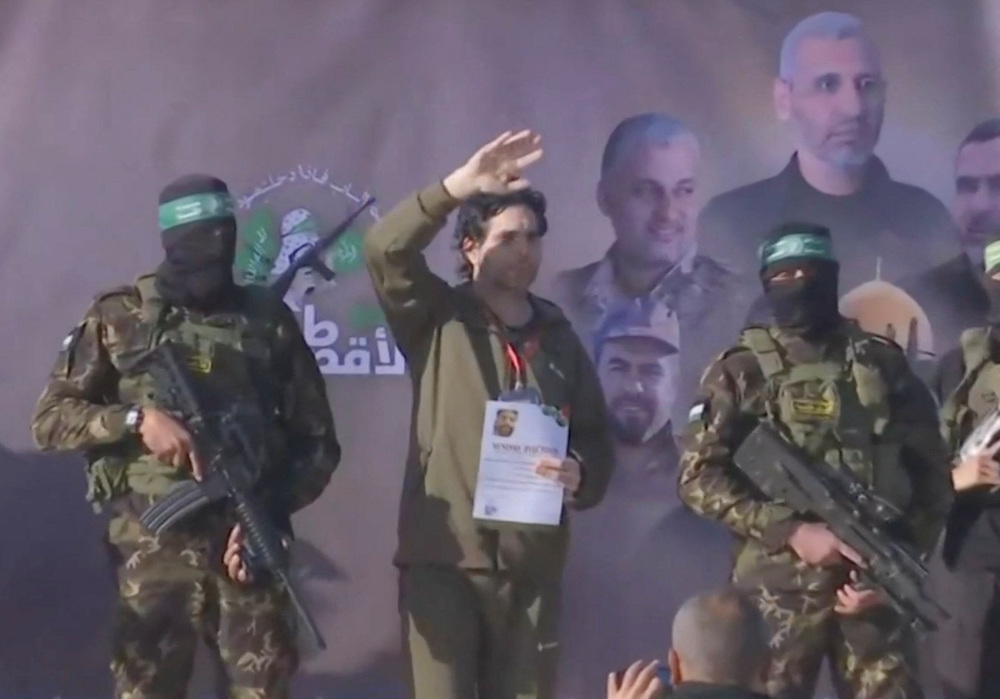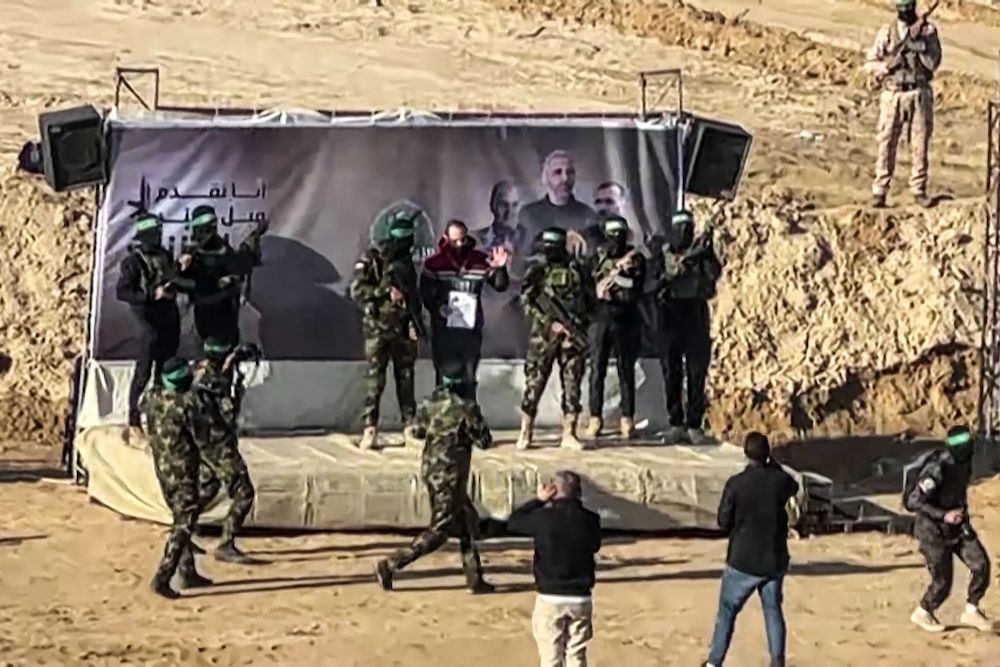GENEVA: The UN peacekeeping mission in Lebanon said on Friday it had come under several “deliberate” attacks by Israeli forces in recent days and efforts to help civilians in villages in the war zone were being hampered by Israeli shelling.
The UN mission, known as UNIFIL, is stationed in southern Lebanon to monitor hostilities along the demarcation line with Israel — an area that has seen fierce clashes this month between Israeli troops and Iran-backed Hezbollah fighters.
Two peacekeepers were wounded by an Israeli strike near a watchtower last week, prompting criticism from some of the 50 countries that provide troops to the 10,000-strong force.
“We’ve been targeted several times, five times under deliberate attack,” UNIFIL spokesperson Andrea Tenenti said by video link from Beirut. “I think the role of UNIFIL at the moment is more important than ever. We need to be here.”
Israel says UN forces provide a human shield for Hezbollah fighters and has told UNIFIL to evacuate peacekeepers from southern Lebanon for their own safety — a request that it has refused.
Israeli Prime Minister Benjamin Netanyahu rejected accusations the force had been deliberately targeted.
However, Tenenti challenged this, saying that in one of the incidents he described Israeli forces penetrated a UNIFIL site and remained there for 45 minutes.
Asked whether UNIFIL would consider defending itself against Israel, he said that it was an option but at the moment it was trying to reduce tensions.
Tenenti also voiced concerns about civilians remaining in southern Lebanon whom he said aid workers were struggling to reach because of ongoing Israeli shelling.
“The devastation and destruction of many villages along the Blue Line, and even beyond, is shocking,” he said, referring to a UN-mapped line separating Lebanon from Israel and the Israeli-occupied Golan Heights.
Asked about the downing of a drone near a UNIFIL ship off the Lebanese coast on Thursday, he said: “The drone was coming from the south but circling around the ship and getting very, very close, a few meters away from the ship.”
An investigation is underway, he added.
Tenenti also said that an investigation several months ago had detected “a trace of the possible use of white phosphorous” by the Israeli army close to a UNIFIL base. The UN Security Council was aware of the case, he said.
White phosphorus munitions are not banned as a chemical weapon and their use — usually to make smoke screens, mark targets or burn buildings — by the Israeli military is documented.
However, since they can cause serious burns and start fires, international conventions prohibit their use against military targets located among civilians.
Israel’s military has previously said in response to Reuters questions that its primary smoke shells do not contain white phosphorous and those that do can be used to create smokescreens and that it “uses only lawful means of warfare.”






























